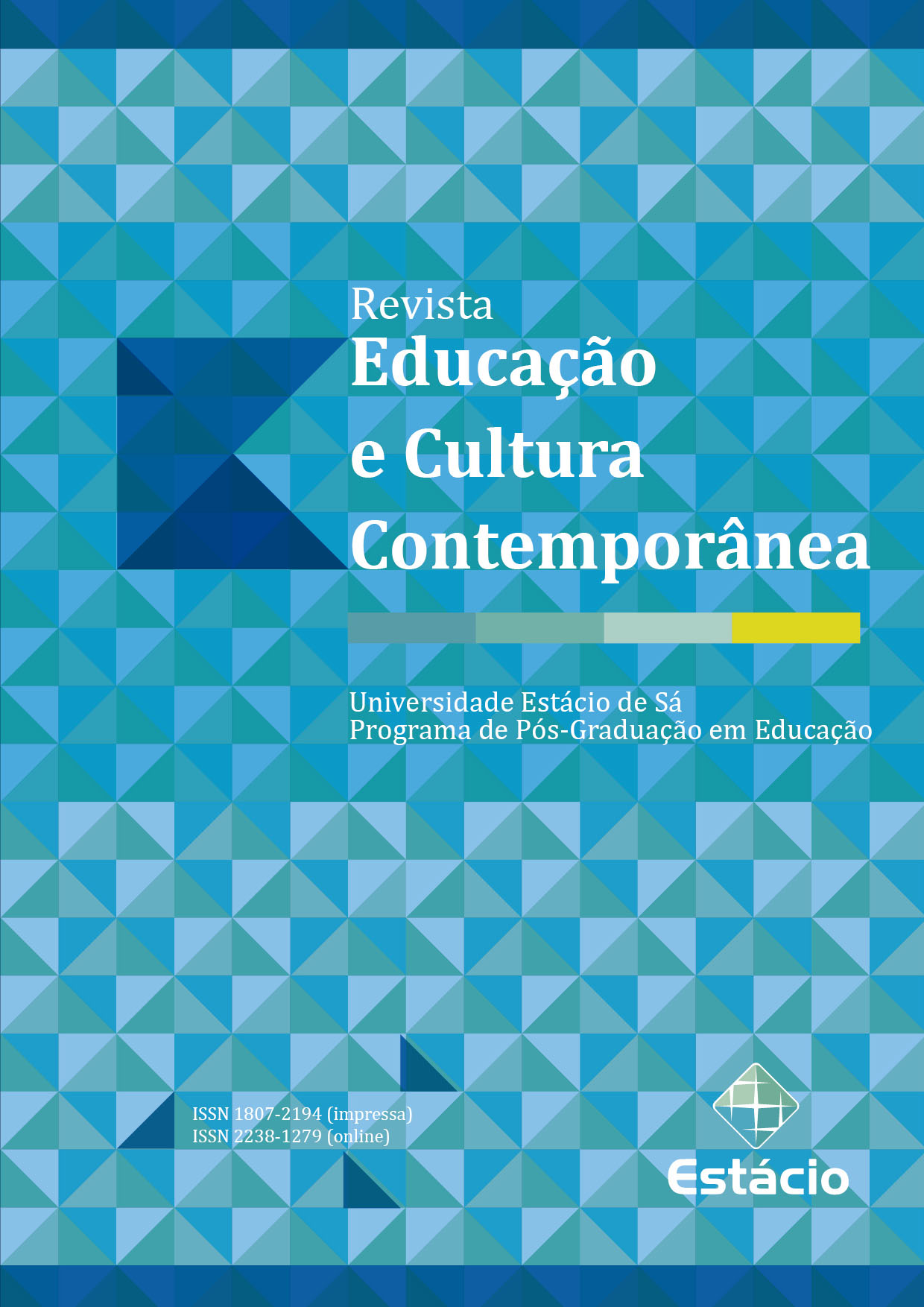Artificial intelligence in teacher training: a literature review
DOI:
https://doi.org/10.5935/2238-1279.2024v210027Keywords:
Artificial intelligence, Teacher training, New technologiesAbstract
In the information age, technological evolution propels the presence of artificial intelligence (AI) across various sectors, including education. The aim of this research is to analyze the approach to AI as content in teacher training, seeking to comprehend the methods adopted and the rationale behind its inclusion. A literature review was conducted using the CAPES journal database, with descriptors related to AI and teacher training, including only peer-reviewed articles. Analysis of seven articles revealed that the integration of AI into teacher training is driven by the growing influence of tools such as ChatGPT, which are changing how people teach and learn. While AI training for teachers in Brazil is in its early stages, the literature presents opportunities to explore theoretical and practical concepts, adaptable to various contexts and levels of teacher maturity.
References
ABAR, C. A. A. P.; ALMEIDA, M. V. Contributos do GeoGebra para exploração do Pensamento Computacional no contexto da Geometria. REMATEC, v. 19, n. 48, p. e2024003-e2024003, 2024. Disponível em: https://www.rematec.net.br/index.php/rematec/article/view/590. Acesso em: 25 de abril de 2024.
BRASÃO, M. R.; ARAÚJO, J. C. S. NADA É NOVO, MAS TUDO MUDOU: a metamorfose da escola. Olhares: Revista do Departamento de Educação da Unifesp, v. 10, n. 1, 2022. Disponível em: https://periodicos.unifesp.br/index.php/olhares/article/view/13593. Acesso em: 2 de maio.
BRASIL. Ministério da Educação. Base Nacional Comum Curricular. Brasília, 2018. Disponível em: http://basenacionalcomum.mec.gov.br/images/BNCC_EI_EF_110518_versaofinal_site.pdf. Acesso em: 2 de maio.
CARVALHO, A. C. P. L. F. Inteligência artificial: riscos, benefícios e uso responsável. Estudos Avançados, v. 35, p. 21–36, 2021. Disponível em: https://www.scielo.br/j/ea/a/ZnKyrcrLVqzhZbXGgXTwDtn. Acesso em 7 de maio de 2024.
GIL, A. C. Como elaborar projetos de pesquisa. São Paulo: Atlas, 2017.
GIRAFFA, L.; KHOLS-SANTOS, P. Inteligência Artificial e Educação: conceitos, aplicações e implicações no fazer docente. Educação em Análise, v. 8, n. 1, p. 116-134, 2023. Disponível em: https://ojs.uel.br/revistas/uel/index.php/educanalise/article/view/48127. Acesso em: 2 de maio.
MARCOM, J. L. R.; PORTO, A. P. T.; BARROS, D. M. V. A formação docente na cibercultura: inovação e acessibilidade. Dialogia, n. 47, p. e25578-e25578, 2023. Disponível em: https://uninove.emnuvens.com.br/dialogia/article/view/25578. Acesso em: 2 de maio.
OLIVEIRA, E. A. S. Conhecimento Poderoso e Inteligência Artificial (IA): Aliando Didaticamente Tecnologias para Educabilidades. Sisyphus: Journal of Education, v. 11, n. 3, p. 31-45, 2023. Disponível em: https://dialnet.unirioja.es/servlet/articulo?codigo=9206876. Acesso em: 2 de maio.
RUSSELL, S J.; NORVIG, P. Artificial intelligence: a modern approach. Pearson, 2016.
SICHMAN, J. S. Inteligência artificial e sociedade: avanços e riscos. Estudos Avançados, v. 35, p. 37–50, 2021. Disponível em: https://www.scielo.br/j/ea/a/c4sqqrthGMS3ngdBhGWtKhh. Acesso em: 8 de maio de 2024.
WEBBER, C.; CESARO, C.; GUDER, D., FRORES, D., BECKER, J. V. Experiências do pensamento computacional no ensino de ciências e matemática. Revista Brasileira de Ensino de Ciências e Matemática, v. 5, n. especial, p. 120-134, 2022. Disponível em: https://seer.upf.br/index.php/rbecm/article/view/12853. Acesso em: 25 de abril de 2024.
WEBBER, C. G.; FLORES, D. Roteiro para a integração da inteligência artificial em experiências de ensino. Tear: Revista de Educação, Ciência e Tecnologia, v. 12, n. 2, 2023. Disponível em: https://periodicos.ifrs.edu.br/index.php/tear/article/view/6861. Acesso em: 25 de abril de 2024.
Downloads
Published
Issue
Section
License
Ao submeter um artigo para publicação na Revista Educação e Cultura Contemporânea, o (s) autor(es) concordam com os seguintes termos:
I. O(s) autor(es) e o(s) eventual(is) coautor(es) conhecem e declaram concordar com as políticas editoriais da revista para a publicação de artigos e com os termos e diretrizes a seguir;
II. Os autores garantem que o trabalho não foi publicado anteriormente em meio eletrônico ou impresso, tampouco encaminhado para publicação em língua portuguesa em outros periódicos. Também asseguram que todos os autores participaram na elaboração intelectual de seu conteúdo;
III. Os artigos publicados representam, exclusivamente, a expressão do ponto de vista de seus autores e não a posição da Revista Educação e Cultura Contemporânea ou do Programa de Pós-Graduação em Educação da Universidade Estácio de Sá;
IV. É responsabilidade do(s) autor(es) assegurar que o manuscrito não contenha elementos que revelem sua identidade, garantindo a revisão cega durante o processo de avaliação por pares. Para isso, devem ser adotadas as seguintes medidas: remover nomes de autores, afiliações institucionais e quaisquer informações pessoais do corpo do texto e das notas de rodapé; substituir referências à própria produção por termos neutros, como “Autor(a)” ou “Autor(a), ano”, evitando citações que permitam a identificação; nomear o arquivo de submissão de forma neutra, sem mencionar o nome do(s) autor(es); e excluir metadados do documento que possam identificar a autoria (ex.: propriedades do arquivo em editores de texto).
V. O responsável pela submissão deve certificar-se do preenchimento completo e correto das informações de todos os colaboradores, conforme solicitado no sistema de submissão, incluindo: nome completo, filiação institucional atualizada, e-mail, link para o currículo Lattes (para participantes brasileiros), ORCID e minicurrículo;
VI. O(s) autor(es) comprometem-se a submeter o manuscrito utilizando exclusivamente o template oficial disponibilizado pela Revista Educação e Cultura Contemporânea (REEDUC), assegurando o cumprimento integral das normas de formatação exigidas. Isso inclui a padronização de margens, fonte, espaçamento, estilo de citações e referências bibliográficas, conforme descrito nas Diretrizes para Autores. Submissões fora do padrão estabelecido poderão ser rejeitadas ou devolvidas para ajustes antes do encaminhamento à avaliação por pares.
VII. Caso tenha sido utilizado algum recurso de inteligência artificial (IA) durante a elaboração do manuscrito, o(s) autor(es) deve(m) declarar esse uso, seguindo as orientações do template e da seção "Declaração de Direito Autoral", disponíveis nesta página.





